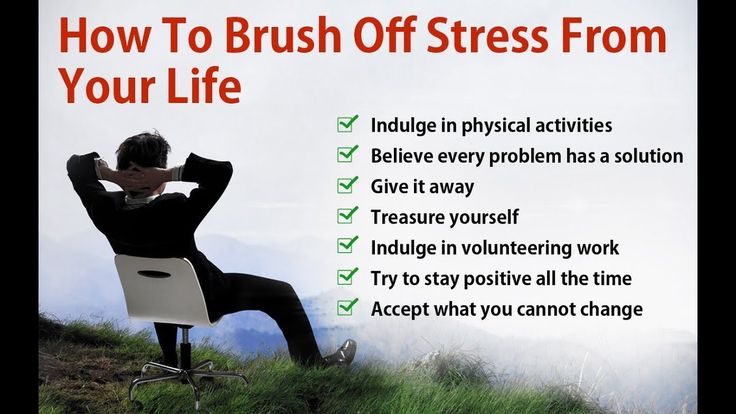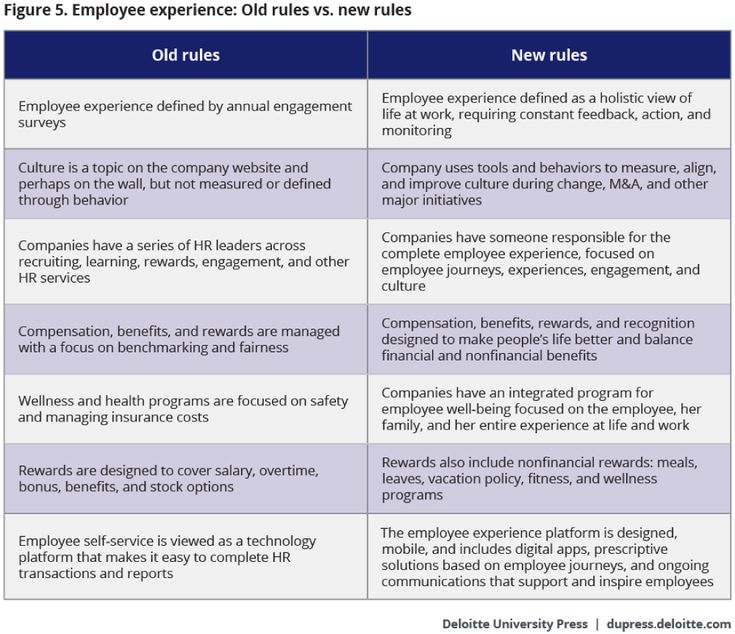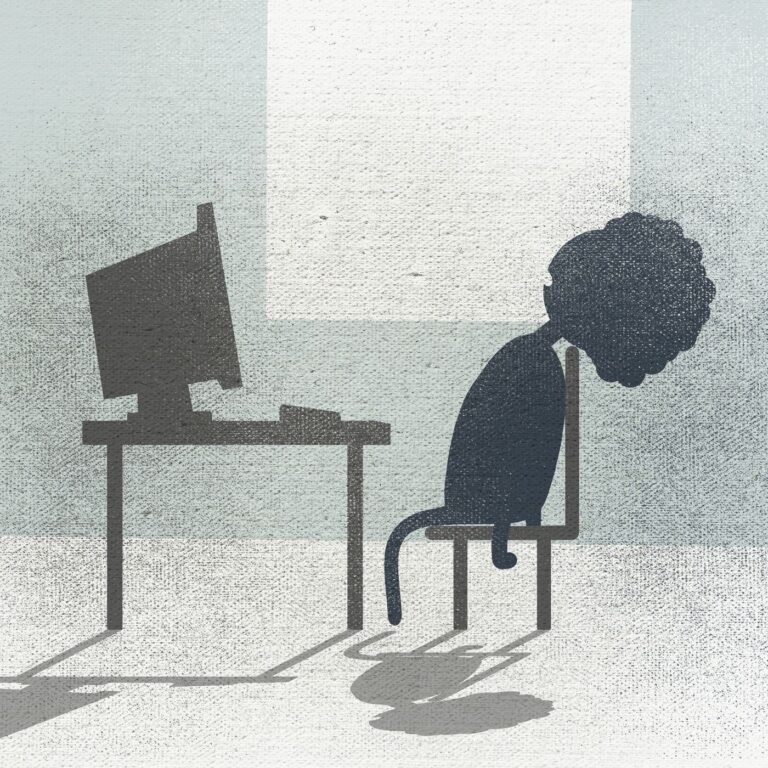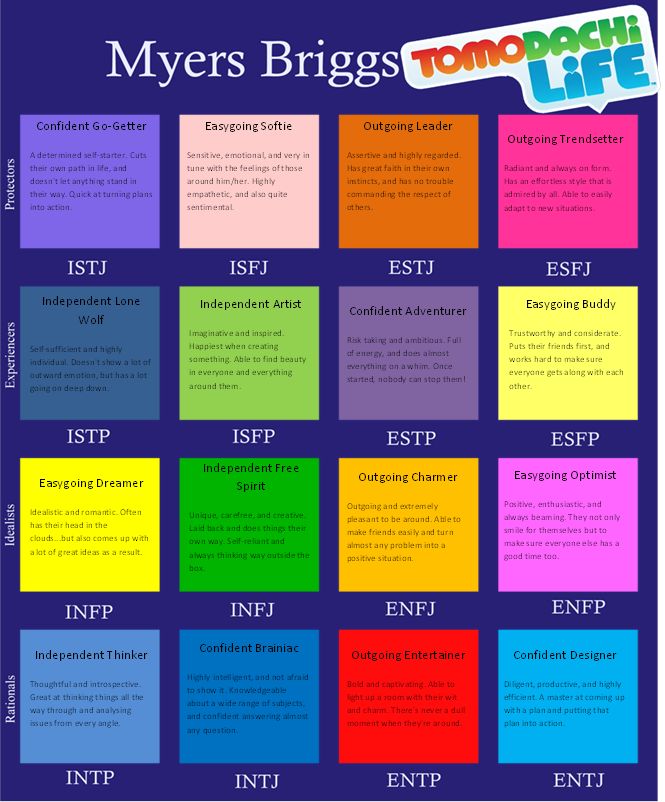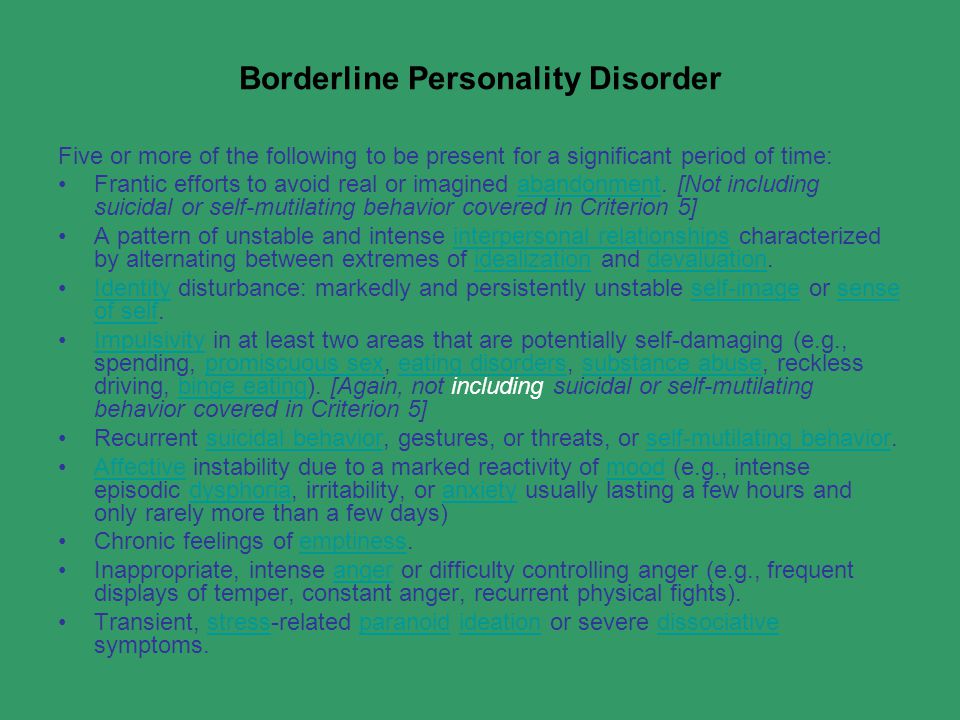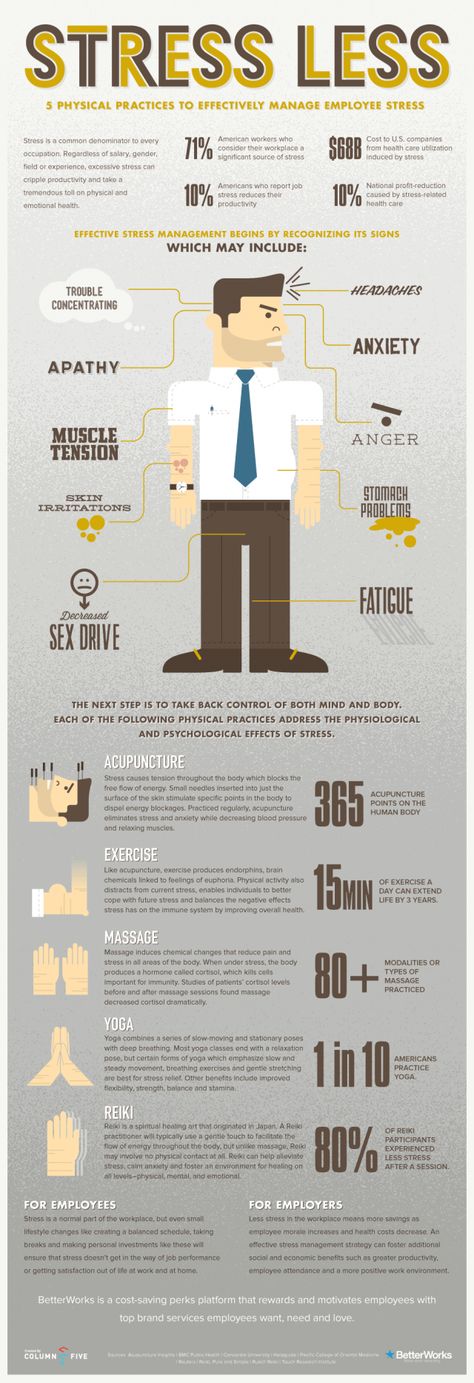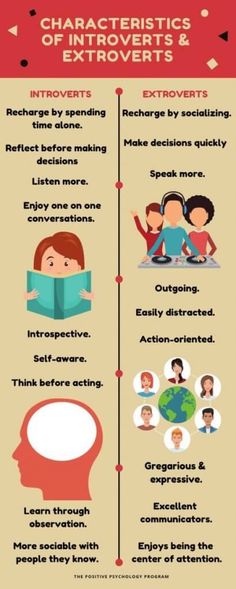How do you recognize stress in your life
Recognizing Stress
Key Points in Identifying Stress
- Stress is a physical and emotional response to a situation. The situation may be positive, like a new baby or a job promotion. Or it can be negative, like a traffic jam or a fight with your teenager. Your body actually doesn't know the difference, it just knows that something is happening and it should get ready to respond.
- When the body perceives stress, it responds by sending out a flood of hormones. These hormones prepare the body to do what is required to adapt and survive.
- Acute stress comes from brief situations like being stuck in a traffic jam.
- Chronic stress comes from situations that do not have a quick resolution and may last months or years. Examples of chronic stress are unemployment or caregiving for a disabled loved one.
- When the body experiences too much stress or it lasts too long without time to rest and restore, our health may suffer. Health affects linked to stress include risk of insomnia, digestive complaints, depression, heart disease, and other conditions.
- We each respond to stress differently. Some may clench their teeth, others will yell and others may withdraw. It's important to recognize how you respond so you can identify when you're stressed as early as possible.
- We can't avoid stress, and others can't manage our stress for us. We have to make the choice to learn and practice stress solutions that enable us to LiVe Well regardless of the situations that come our way.
Your Stress Toolbox
- Recognize your personal signs of stress as early as possible:
- List of symptoms
- Are You Ready to Scream? handout
- Identify the sources of your stress. These may be from acute or chronic situations or a combination of both.
- Create a Toolbox of Stress Solutions. Just like a well-stocked toolbox that can take care of any problem, our stress solution toolbox should contain a variety of tools that we can pull out and use with stressful situations.
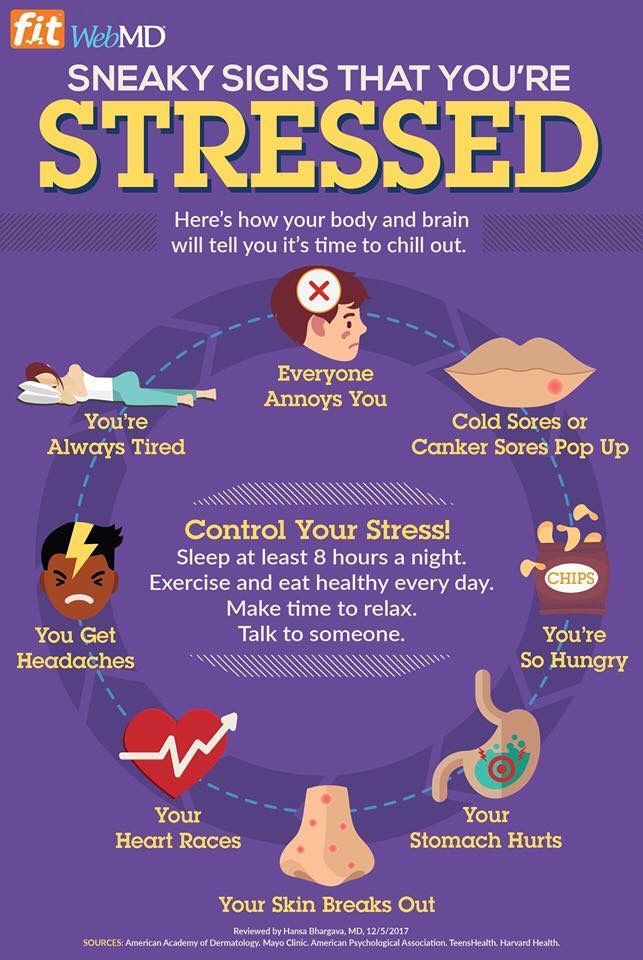
A good toolbox should include the following:
- Self-awareness. A valuable tool is to be self-aware of how you are currently managing stress. Ask yourself: What do I do well to cope? What don't I do so well? What do I need to learn to do better? You can also ask others close to you to give you feedback.
- Self-Care. There are basic daily activities that prepare us to cope well with daily stress. These include eating regular, healthy meals, exercising, getting enough sleep, having time to think and relax, and learning positive self-talk. You may have other activities that are crucial to your self-care like spirituality and hobbies.
- Skills. There are basic life skills that we can learn and practice that can significantly improve our ability to deal with stress. Examples of these skills include managing money to not be in debit, managing time to meet your highest priorities, dealing with conflict at home and at work so that you can have positive, healthy relationships, and having a sense of humor.
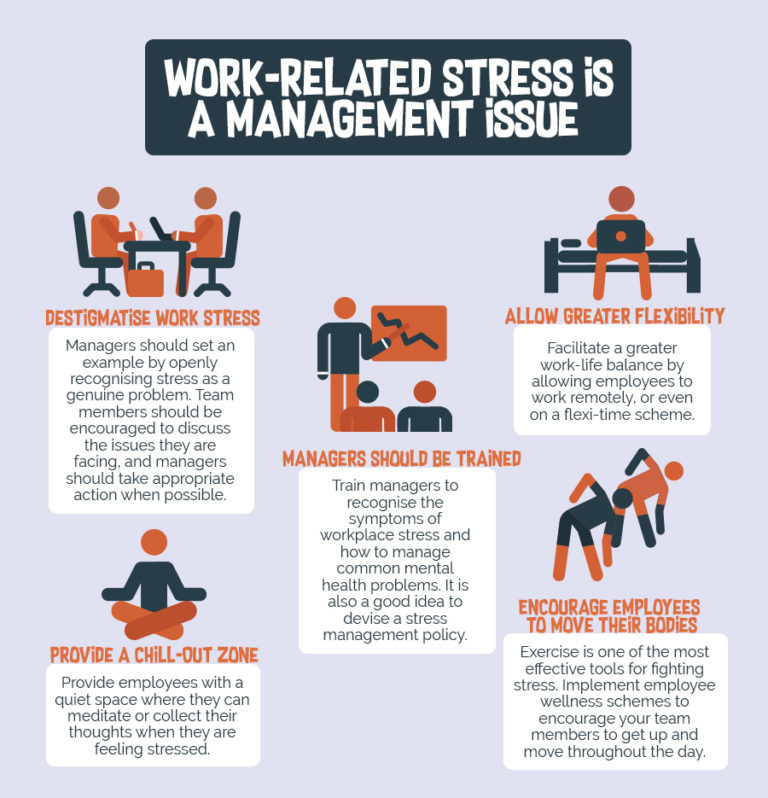
- Social Support. Essential in the stress solution toolbox are friends that you can rely on and who inspire you to be your best self. You can count on them to be there when you are having a difficult time and they will listen to you as you sort out life's challenges.
- Know when to get help. There are times when we need to seek out professional help, such as a physician or a counselor. This isn't a sign of weakness, but rather an acceptance that we need to learn new things when confronted with unfamiliar circumstances.
How To Recognize the Signs of Stress
Stress levels are at an all-time high in American culture. Many factors contribute to stress, from finances and work to family and relationships. No one wants to live with stress, but without recognizing it and taking measures to prevent or manage it, overcoming it will not be completely possible. Everyone handles stress differently, and not all people will have the same symptoms.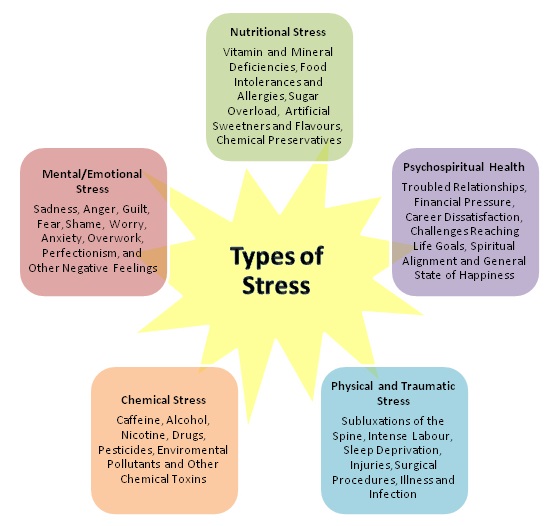 Here’s how to identify the signs of stress.
Here’s how to identify the signs of stress.
Mental/Emotional
The mental and emotional side of stress is often the most subtle. Sometimes, people may be accustomed to living in a stressed or anxious state of mind and don’t realize something is wrong. Some mental and emotional symptoms of stress include:
- Negative Mood: This encompasses feelings of irritability, anger, guilt, frustration and short-temperedness. When the mind is overwhelmed with tasks, worries and excessive care burdens, mood is often one of the first things affected. It’s important to your mental health to recognize these states of mind when they appear and learn how to take some time to come to terms with your stress and deal with it constructively.
- Anxiety: Thanks to advances in modern science and increases in awareness of mental illness, we now know more about overcoming anxiety than ever. But this process must begin with identifying it. Anxiety is also not always a chronic mental health condition, and some simple de-stressing exercises can help to overcome it.
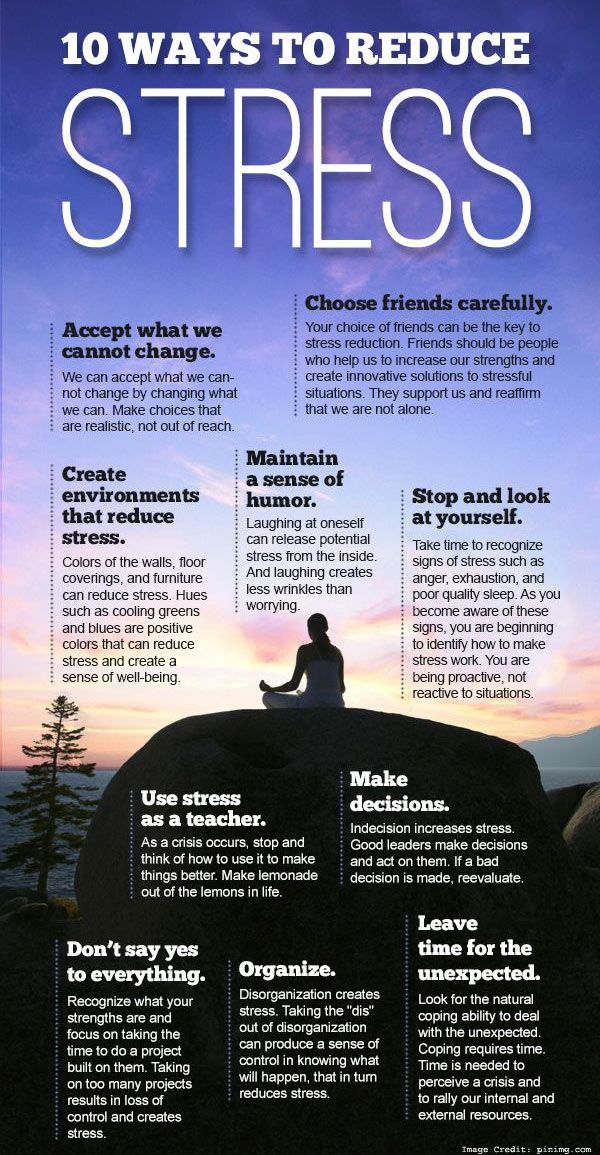 However, if you do struggle with anxiety, you may also come to discover that you have physical pains such as headaches or abdominal cramping during a flare-up, or that you begin to panic, or that you have low self-esteem or self-image. A sense of helplessness or loss of control can also result. If these mental health problems persist, it may be time to see a doctor or a counselor.
However, if you do struggle with anxiety, you may also come to discover that you have physical pains such as headaches or abdominal cramping during a flare-up, or that you begin to panic, or that you have low self-esteem or self-image. A sense of helplessness or loss of control can also result. If these mental health problems persist, it may be time to see a doctor or a counselor.
- Depression: Often linked to anxiety, this is also a mental health condition that many people struggle with today. Depression usually involves feelings of inadequacy, failure, extreme sadness or even an empty mood. It can also manifest as a feeling of inability to accomplish tasks and goals. Severe cases sometimes result in the individual being so fatigued they don’t feel able to move. On the other hand, it can also result in insomnia. However, the symptoms of depression are also not always tangible or easy to point out. While depression is not always the result of stress, stressful situations can definitely make it worse.
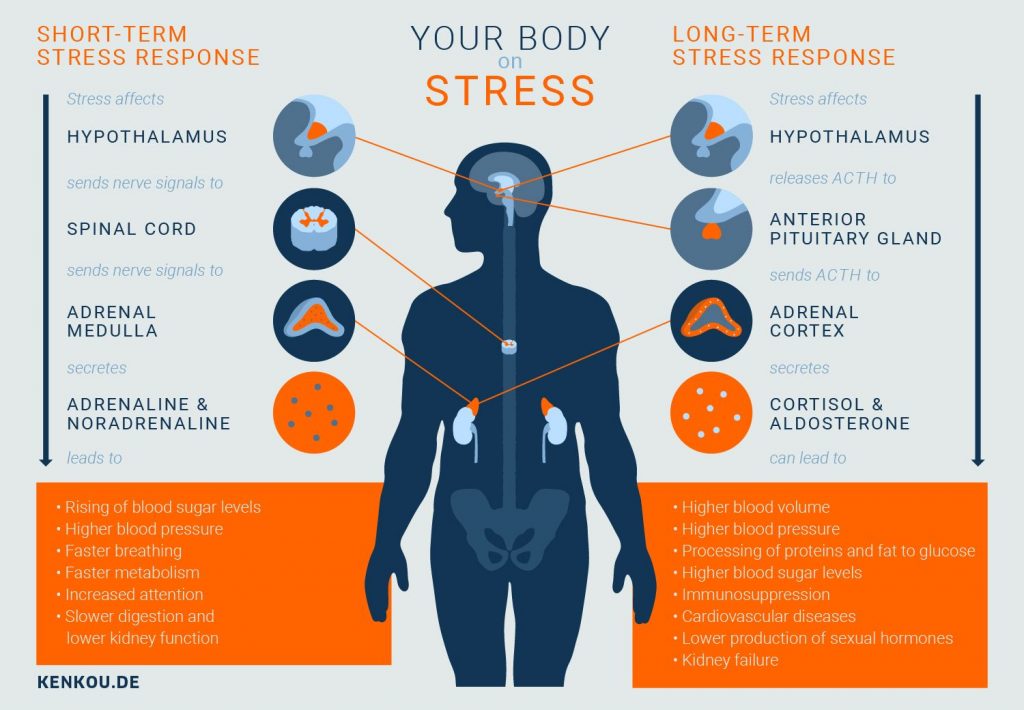 Like anxiety, it is also not always a chronic condition. However, if it is, having it identified as such is the first step to overcoming it.
Like anxiety, it is also not always a chronic condition. However, if it is, having it identified as such is the first step to overcoming it.
- Decreased Mental Function: If you frequently suffer from stress, you may find that your capacity to think critically or be motivated significantly decreases. This can include apathy, sluggishness, difficulty making decisions, forgetfulness, difficulty keeping track of everyday details and lack of awareness of your surroundings. This can also manifest in avoidant behaviors, in which you try, consciously or unconsciously, to stay away from a stressful situation or individual.
- Addictive or Vice Behaviors: Being under stress often leads to the pursuit of coping or defense mechanisms. This can include anything from increased appetite or sugar consumption to addictive behaviors like tobacco and alcohol consumption. Anything that you find yourself indulging in more frequently, which comforts you or makes you feel good, can potentially be a coping mechanism.
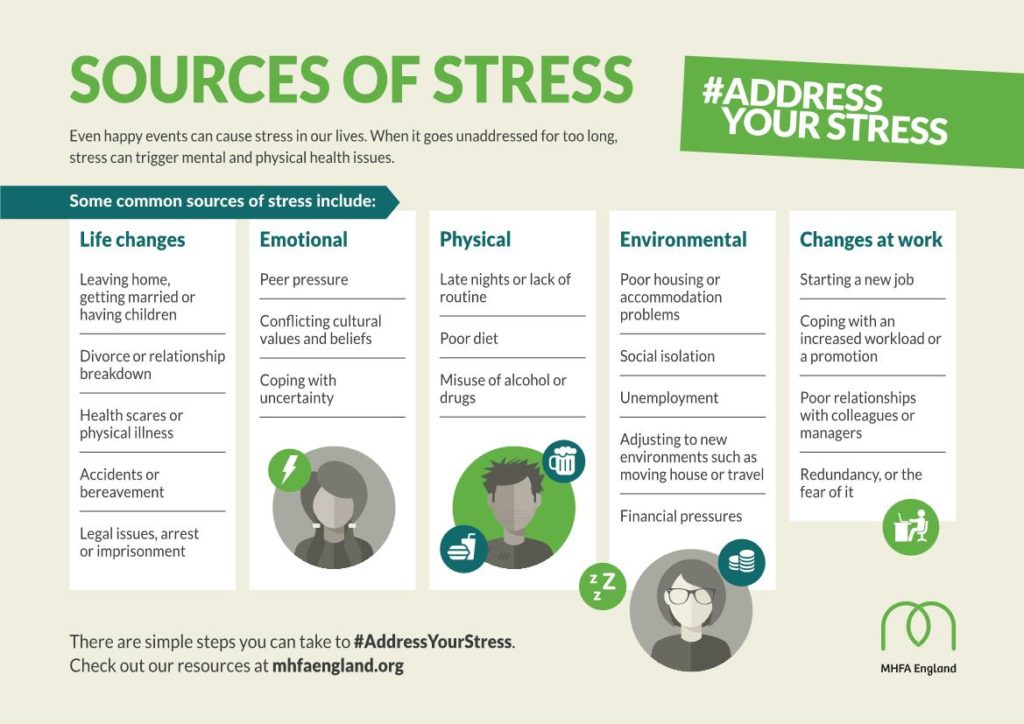 However, coping mechanisms only continue to harm you, as they cover or ease the symptoms of stress without dealing with the root cause, and may also go on to cause physical problems.
However, coping mechanisms only continue to harm you, as they cover or ease the symptoms of stress without dealing with the root cause, and may also go on to cause physical problems.
Physical
The physical side of stress is much more obvious and easily noticeable. Many physical symptoms of stress are disabling or cause a great deal of pain. Once again, not everyone will experience the same physical symptoms of stress, but all of these can indicate that your stress level has become too much for your body to handle.
- Appetite/Weight Changes: For many, stress directly affects appetite. For some, this means binge eating, while for others, this means a complete loss of appetite. Rapid weight change can also occur as a result of both stress and appetite changes. If you find that you’re eating significantly more or less than usual or gaining or losing excessive amounts of weight, it may be time to evaluate your life for stressors and see a doctor.
- Physical Pain: When under stress, the body often responds with pain signals.
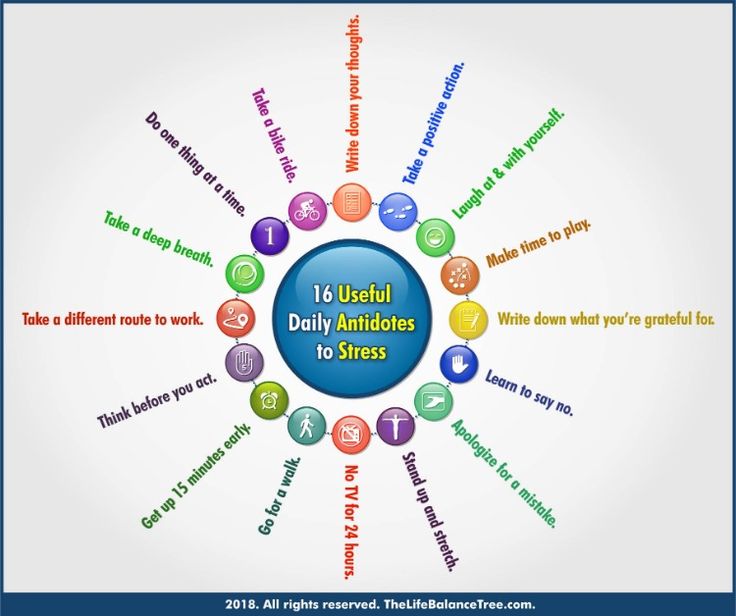 This can cause any number of symptoms, such as headaches/migraines, intestinal or bowel issues (i.e. gas, constipation, diarrhea) and muscle aches and tightness. For some people under stress, pain can become chronic and will need to be dealt with through taking dietary supplements or medication.
This can cause any number of symptoms, such as headaches/migraines, intestinal or bowel issues (i.e. gas, constipation, diarrhea) and muscle aches and tightness. For some people under stress, pain can become chronic and will need to be dealt with through taking dietary supplements or medication.
- Changes in Sleep, Fatigue and Sexual Wellness: Sleep mostly helps our brains stay healthy. But when our brains are overloaded with stress, they can respond by either demanding more rest or by not allowing you enough rest. Both insomnia and oversleeping are common signs that your body clock is being messed up by stressful situations. Additionally, feeling physically fatigued, whether or not you’re able to sleep, is a sure indicator that your body and mind are worn down. On a related note, you may notice changes in sexual wellness or libido.
- Frequent Sickness: Closely related to the physical pain symptom, those who are under stress may find themselves becoming sick far more often than normal.
 Stress weighs and wears on the body, and will over time decrease the effectiveness of your immune system. When your immune system is compromised, it will not as easily fight off illness.
Stress weighs and wears on the body, and will over time decrease the effectiveness of your immune system. When your immune system is compromised, it will not as easily fight off illness.
How to Handle Stress
The first step in handling stress is to decide you’re not just going to “deal with” or “tough through” it. It’s important to recognize when you’re stressed. Stress indicates a boundary or limit in your physical or mental/emotional abilities that will negatively impact your overall wellness if continually breached. Admitting and seeking out answers and solutions to stress will help you overcome it far more than ignoring it. A few ways to manage your stress include:
- Maintaining a healthy diet and taking supplements if needed
- Drinking lots of water
- Exercising regularly
- Meditating, doing yoga and/or breathing exercises
- Journaling, reading or doing other calming, self-aware and self-care practices
- Reaching out to others for assistance (you don’t have to do this alone!)
Finally, if you are having difficulty managing your stress level, talk to your primary care physician. He or she can help you find healthy and body-positive solutions that will empower you to enforce boundaries with stress in your life and help you face all of life’s challenges with a mindset of self-awareness. At Community Access Network, we can and desire to help you navigate life’s daily struggles and your personal wellness. Contact us today!
He or she can help you find healthy and body-positive solutions that will empower you to enforce boundaries with stress in your life and help you face all of life’s challenges with a mindset of self-awareness. At Community Access Network, we can and desire to help you navigate life’s daily struggles and your personal wellness. Contact us today!
How to cope with stress: graduates of ION RANEPA tell
-
03/02/2022
Share with friends
Many students experience stress. The reason for its occurrence is different: some experience stress because of entering a university, others because of the need to move to a new city, and someone is worried about upcoming tests and exams. Together with the graduates of the program "Psychological Counseling and Coaching" of the ION RANEPA, psychologists-consultants of the Tangram project Daria Nikitina and Tatyana Pavlova, we have prepared a guide with which you will learn how to recognize stress and prevent its consequences.
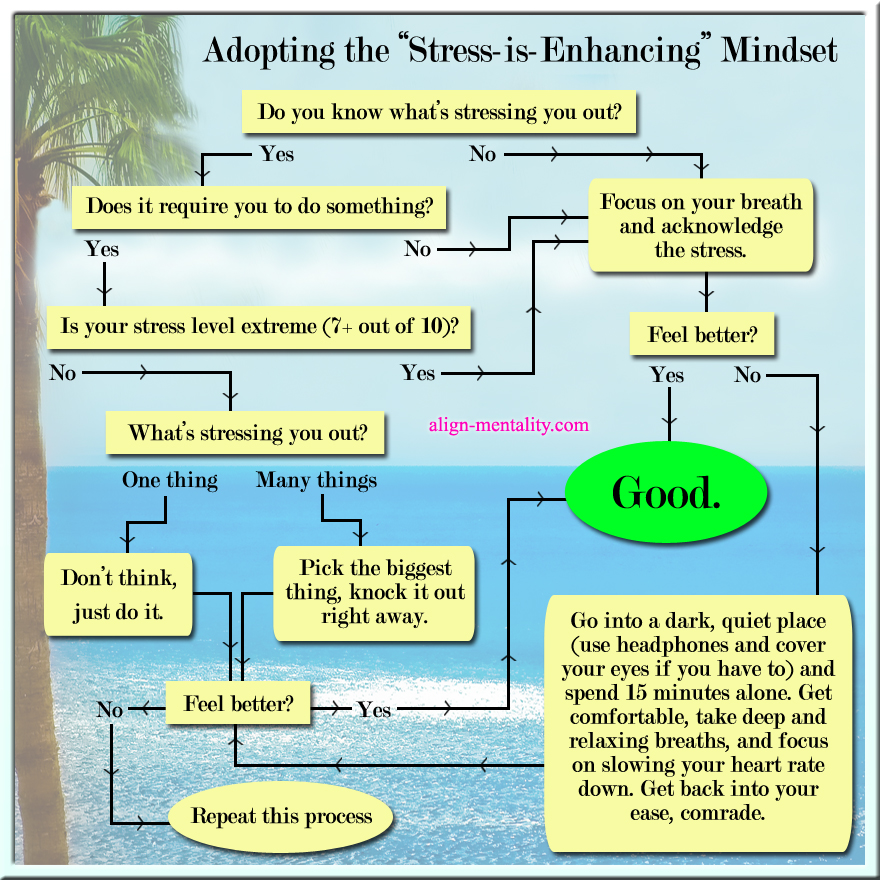
Stress is normal
First, you need to understand what stress is. Stress is a non-specific reaction to some demand from the world. Any event causes stress. If we observe ourselves, we will find that we react in the same way to both a joyful and an unpleasant event. First of all, such a reaction is characterized by increased blood pressure, muscle hypertonicity. The purpose of stress is adaptation, coping with it. For students, for example, the first session is always perceived as a very stressful event: shaking knees, trembling in the voice when answering. But we try to cope with it, to adapt, and in subsequent sessions we feel more relaxed.The role of procrastination in stress
Procrastination is usually the first thing that comes to the surface when something goes wrong. Things are postponed until later, because a person is under a lot of stress, or, on the contrary, there is a feeling that the value of the activity that we are doing is too small. Some call it laziness, scold themselves.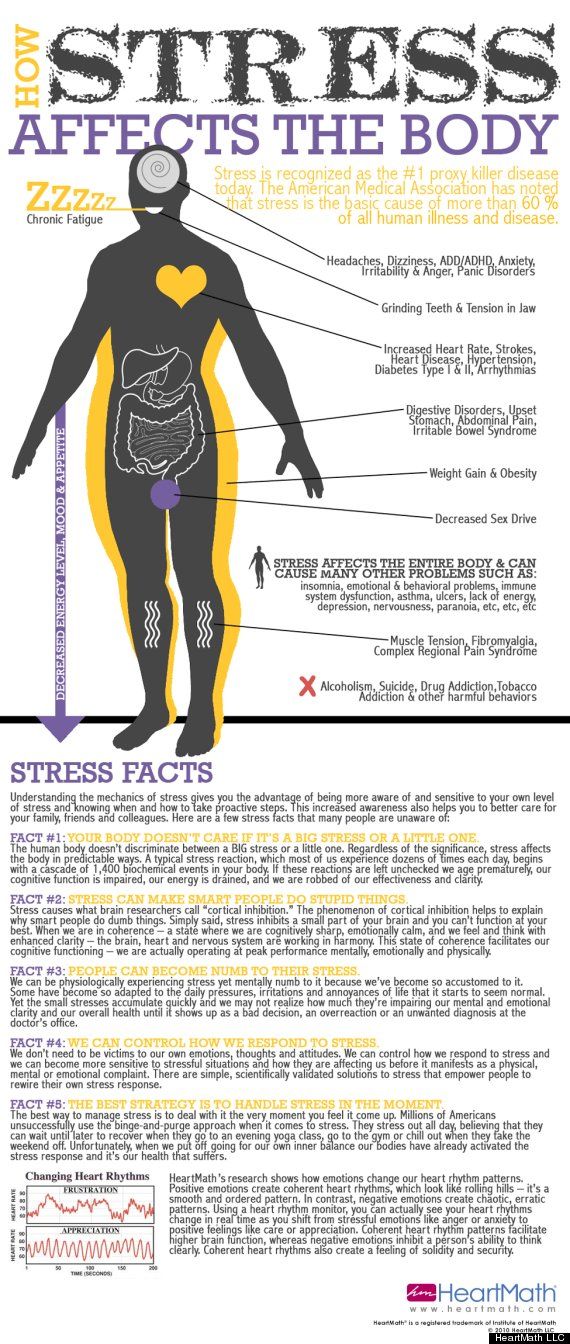 Although laziness as such does not exist. There is resistance to this work. You don’t do something not because you don’t try hard, but because of the lack of desire, value in work. And if we talk about how to cope with procrastination, then it is worth starting with the search for meanings. You have, for example, a goal - to work in the field of advertising. To achieve this goal, you need to graduate from the university. To graduate from the university, you should complete tasks from teachers, no matter how difficult it is. And only through the search for meanings can you cope with procrastination. It is in our power to give value to what we do.
Although laziness as such does not exist. There is resistance to this work. You don’t do something not because you don’t try hard, but because of the lack of desire, value in work. And if we talk about how to cope with procrastination, then it is worth starting with the search for meanings. You have, for example, a goal - to work in the field of advertising. To achieve this goal, you need to graduate from the university. To graduate from the university, you should complete tasks from teachers, no matter how difficult it is. And only through the search for meanings can you cope with procrastination. It is in our power to give value to what we do. When you need help with stress
You need to analyze yourself and understand when the stress has become too intense, and the body has ceased to cope with it on its own. Not everyone is able to immediately determine the deterioration in their body. But if you suspect that something is going wrong, pay attention to whether you are sleeping well, if you have problems with appetite, if you have lost weight, if your concentration has worsened.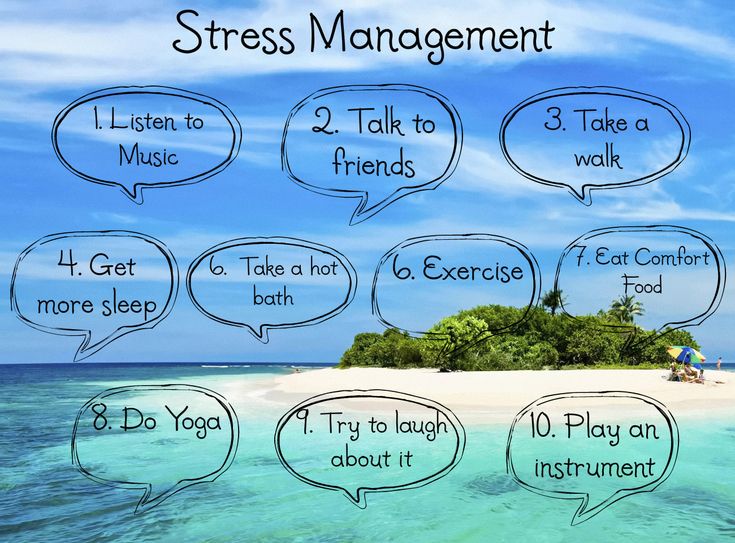 If such cognitive reactions are not detected in time, then prolonged stress can lead to the development of psychosomatic diseases, burnout, exhaustion, and even psychological trauma.
If such cognitive reactions are not detected in time, then prolonged stress can lead to the development of psychosomatic diseases, burnout, exhaustion, and even psychological trauma. How to deal with burnout
There are three symptoms of burnout:- Increased fatigue. There is a decrease in cognitive and physical abilities;
- Cynicism. We stop enjoying and taking pride in our work;
- Inefficiency. All the resources that we spend on any activity do not bring results. Often, loss of meaning can also lead to burnout. When you do a lot of things, but do not understand why. To prevent burnout, learn to prioritize. Answer the questions honestly about what is important to you, what brings you pleasure, why you do a certain job. If you understand that some tasks can be delegated, then you should do so. Communication with friends and colleagues also helps not to burn out. The most important and main point is to rest more and normalize sleep.
- Brain dump: write about everything that bothers you. It doesn't matter how beautifully and competently you write. Re-read the resulting text, think about which of the points you can handle on your own, draw up an action plan. It can calm;
- Vision of the Future: Imagine a future without the things that are bothering you right now. Try to focus on how your life will look like, what you will do after, what emotions you will experience when you reach the goal;
- Safe place.
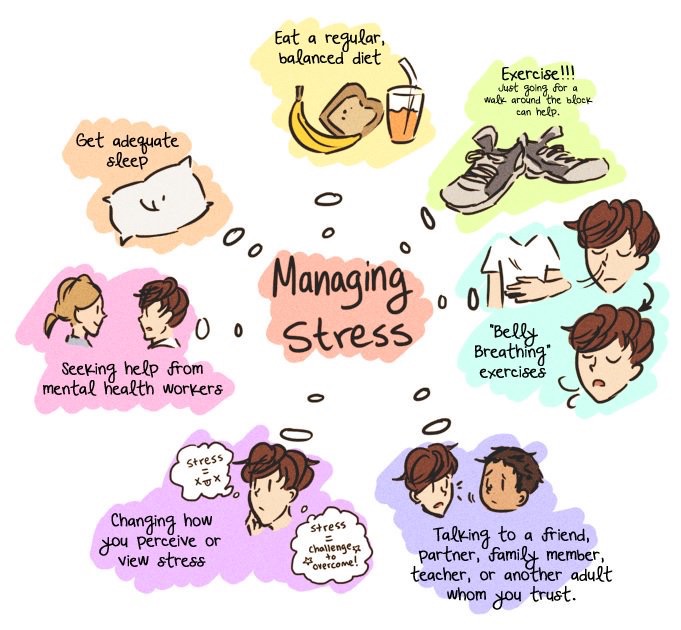 Imagine a place where you will be safe. Where will it be located? How to look? What will happen there? Return mentally to this place every time you feel anxiety.
Imagine a place where you will be safe. Where will it be located? How to look? What will happen there? Return mentally to this place every time you feel anxiety.
Turning to a psychologist is not ashamed
We often devalue what happens in our lives. It happens that the events, in our opinion, are not serious enough to seek help from a specialist. But this is not the right approach. Mental hygiene is important in order to understand how to behave and react in any situation. The psychologist immerses you in a space from which you can look at yourself from the outside. Turning to a psychologist is an opportunity to learn more about yourself, to understand how big and interesting you are.
It happens that the events, in our opinion, are not serious enough to seek help from a specialist. But this is not the right approach. Mental hygiene is important in order to understand how to behave and react in any situation. The psychologist immerses you in a space from which you can look at yourself from the outside. Turning to a psychologist is an opportunity to learn more about yourself, to understand how big and interesting you are. Stress relief exercises
To help you relax and cope with stressful situations, we have prepared several exercises:
More details about all the exercises can be found at the link.
A new issue of the "Scientific Bulletin" program has been released
causes, symptoms, treatment, useful or not
- directions
Neurology Neurorehabilitation center epileptological center Rehabilitation and physiotherapy Headache treatment Gynecology Orthopedics Psychiatry Functional diagnostics Pediatrics Ultrasound diagnostics
Psychology treatment room Otolaryngology Therapy Endocrinology Cardiology Rheumatology Urology Allergology Botulinum therapy Nephrology
- services and prices
- specialists
- clinic
- About clinic
- News
- Reviews
- Question answer
- Licenses
- Requisites
- Supervisory authorities
- Privacy Policy
- contacts
Stress is a state of psychological and physical tension in response to external influences.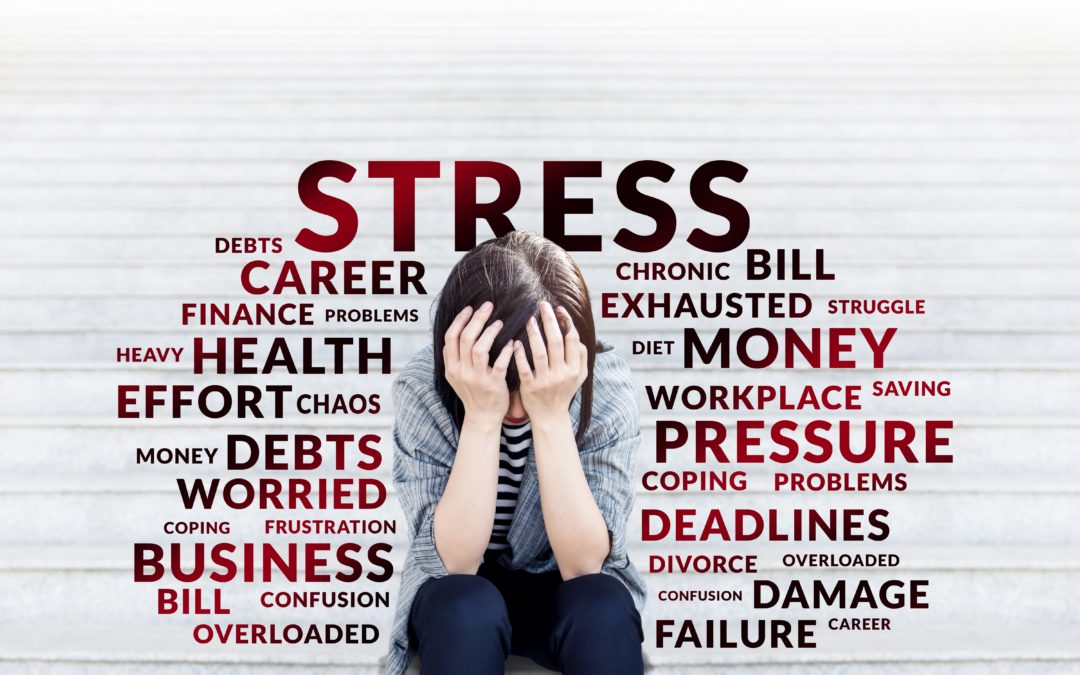 It can be caused by difficult situations, monotonous activities and emotional factors. Stress helps you adapt to a changing environment, but can have negative health consequences.
It can be caused by difficult situations, monotonous activities and emotional factors. Stress helps you adapt to a changing environment, but can have negative health consequences.
Is stress good or not?
Short-term one-time stress has a positive effect. In response to a stimulus, the body produces three hormones: cortisone, adrenaline, noradrenaline and activates the cells of the immune system.
Thanks to this, a person for a short time period:
-
memory improves;
-
increases the level of immunity;
-
the rate of tissue regeneration increases;
-
intellectual abilities are activated;
-
increases the endurance of the nervous system;
-
the functioning of the sense organs improves.
If a person is systematically exposed to a stress factor, all his organs and systems work hard.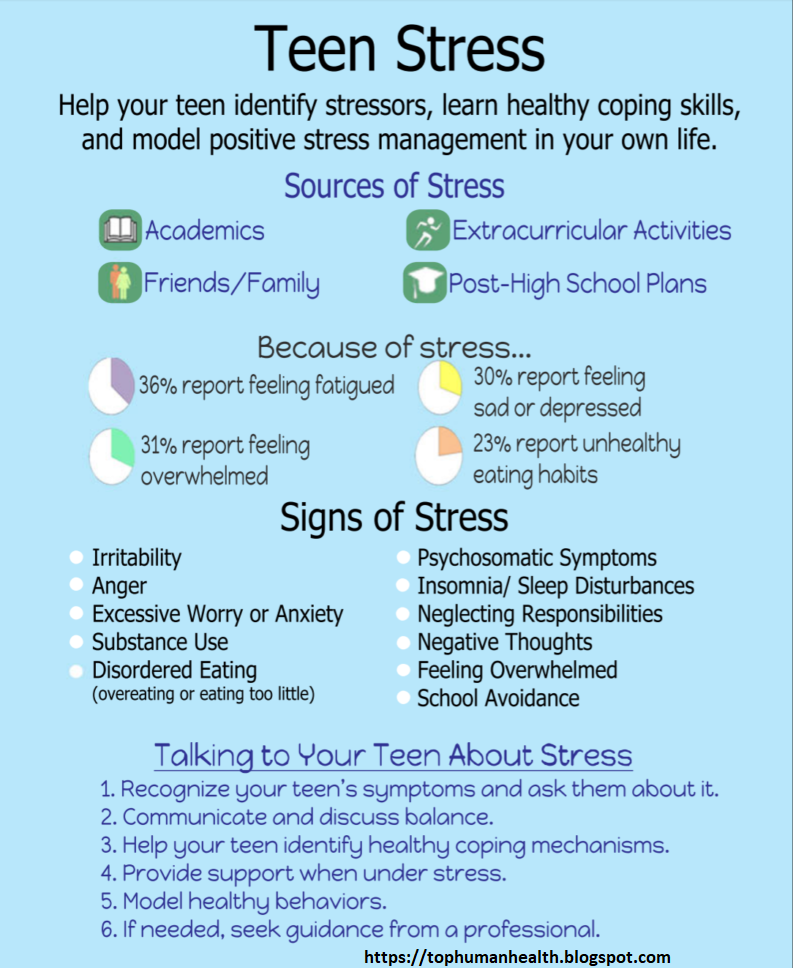 As a result, the body intensively wastes energy, passing through the three stages of the process.
As a result, the body intensively wastes energy, passing through the three stages of the process.
The first stage takes effect at the moment of exposure to the stress factor, and lasts a few minutes. It is followed by a second one lasting from several hours to several days, during which a person is looking for a solution to the problem or a safe way out of the situation.
If the action of the factor continues, the body depletes the adaptive capacity and ceases to minimize the harmful effects of the stressor. It is at the stage of distress that a person experiences overload, psychological disorders, signs of somatic diseases.
Causes of stress
Allocate systemic and mental type of impact of a stress factor. The systemic type is the body's response to an infectious disease, inflammation, injury, light, high or low temperature. Mental type - manifests itself on the emotional and mental sphere, followed by the biological level.
Mental causes of stress include:
-
professional activities associated with increased responsibility;
-
complex relationships in the family;
-
conflicts, phobias, problems in communication, threats of a different nature, intractable problems, dysfunctional social relations in the team;
-
unfulfilled needs, low self-esteem, perfectionism;
-
change of place of residence or work, monotonous activity, divorce, death of a loved one;
-
information overload;
-
lack of rest sufficient to restore the psyche;
-
psycho-emotional tension caused by risk, time pressure, increased workload, novelty of the situation or its uncertainty.
The consequences of prolonged stress in men and women are the same - depression and somatic diseases. Therefore, it is important to timely note the signs of psychophysical stress, identify its causes and eliminate it.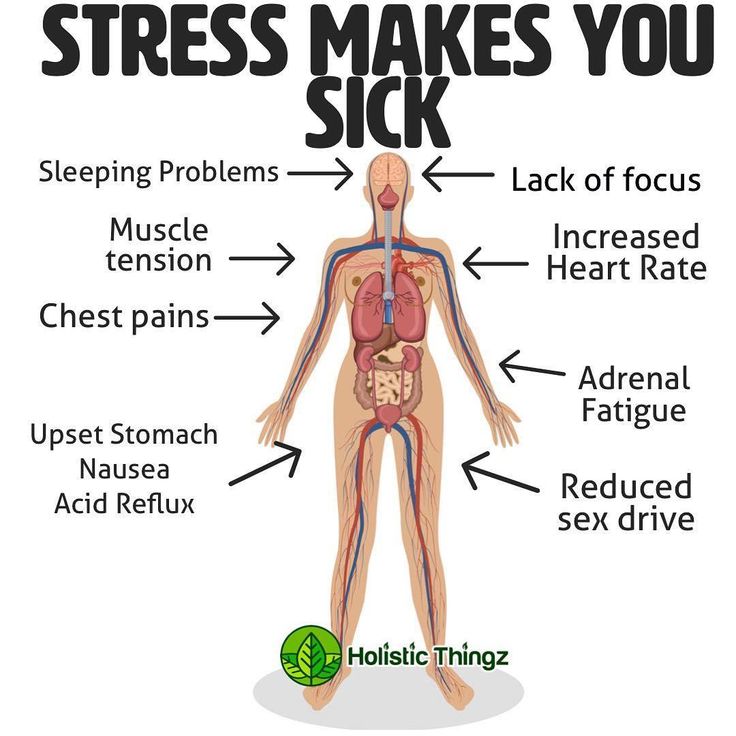
Signs of stress
Prolonged exposure to a stress factor causes serious stress throughout the body, significantly worsening the general mood and well-being of a person.
Common symptoms of developing stress:
-
Muscle tension in the head, neck, shoulders, back.
-
Increased anxiety.
-
Irritability at the slightest provocation.
-
Reduced performance.
-
Depression, apathy.
-
Sleep disorders.
-
Absent-mindedness, deterioration of memory and ability to concentrate, slowing down the pace of thought processes.
-
Chronic fatigue, pessimism, desire to distance themselves from society.
-
Headache, unexplained chest pain.
-
Disorder of appetite, violation of the digestive function.
Often a person acquires an obsessive habit, for example, biting his lips, turning his neck, straightening his hair.